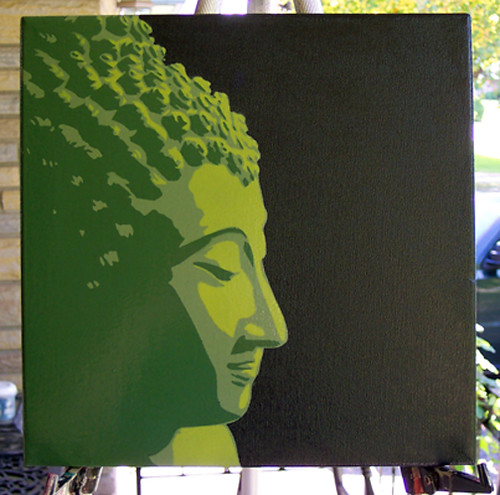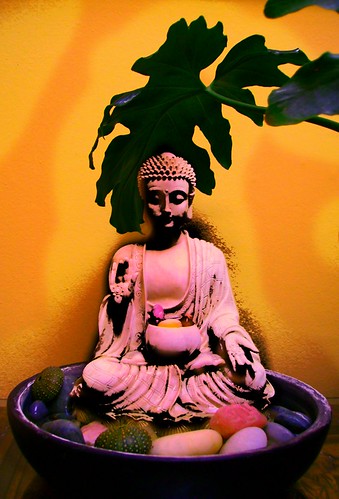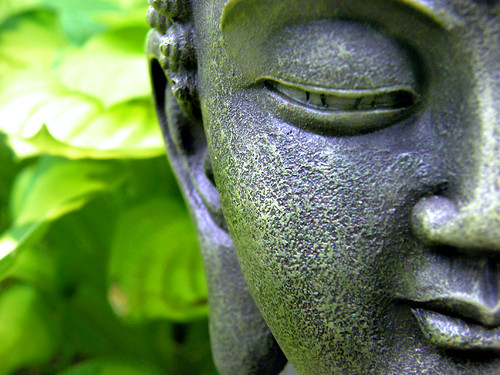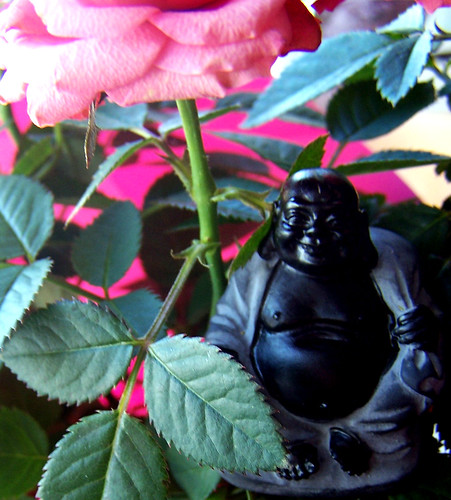When Guyana's inter-religious organisation issued a statement denouncing homosexuality, the central argument was that unseen parties want to influence and corrupt young impressionable minds to promote homosexuality. The statement instructed us that the scriptures of all religions condemn homosexuality, as against the "natural law," violating the natural plan of creation, that will lead to the damnation of our nation and to our extinction.
The most extraordinary claim, however, is that homosexuality is a product of Western culture, a new form of colonialism.
This statement reflects a host of irrational fears that cannot be empirically supported by social reality anywhere in the world. People are not converted to homosexuality in the manner of religious proselytizers who, through unconscionable and despicable methods, unapologetically and deliberately target young and impressionable minds and prey on people's vulnerability.
Of all societies in the world where homosexuality is accepted as an alternative lifestyle, none has suffered the kind of the degradation that our religious leaders fear may take place here in Guyana. The Netherlands, for example, and particularly the Dutch city of Amsterdam, is perhaps one of the most liberal places in the world. The city even boasts a monument devoted to the memory of homosexuals who have been persecuted throughout the ages. There can be few places in the world that breathe such an air of freedom, sophistication and culture, music, art and literature, much of it contributed by homosexuals themselves, as Amsterdam.
From Finland to Italy and across the Atlantic to United States and Canada, liberal, compassionate and enlightened attitudes towards diversity and alternative lifestyles are an integral part of peaceful, progressive, humane societies. In these nations, the family continues to prosper. There are no signs of "extinction" and "damnation."
Such fears derive not from homosexuality, but from irrationality and fanatic religious zealots of every stripe and star, from those religious persuasions which claim to be the sole repository of the truth to which all else must be converted, and from followers of such religions who do not have the patience to wait for unbelievers and homosexuals to be punished in the afterlife, as their teachings go, but who with awesome zeal seek to do so here and now.
So, who or what poses the greatest dangers to society? Is it homosexuality, or is it religious intolerance? The clear and unambiguous truth is that the greatest danger lies among those aggressive, intolerant religious creeds of the world that see unbelievers and those whom they believe violate the "natural law" as agents of the devil and enemies of God.
We must guard against the self-appointed arbiters of morality, the moral policemen, who claim to derive their authority and inspiration from ancient and divine writs that, implicitly and explicitly, leave no room for toleration of religious differences--or other diversities such as sexual orientation.
This brings us to the claim that having a liberal and enlightened attitude towards homosexuality means that we are giving in to Western influence and values. It is always intriguing when we hear uninformed people speak of homosexuality as a form of colonialism. Aren't they aware of the apparent contradictions? Of all the institutions we have inherited from the colonial past, there is none more thoroughly colonial and Western, heart and soul, than Christianity--a religion whose scriptures are often invoked when vilifying homosexuals.
The fact of the matter is that homosexuality is as old as humanity itself. It has been practiced for untold centuries, in one form or another, even in those societies where, today, death can be the penalty for homosexuals.
We must also be concerned about what is glibly and uncritically invoked to be the position of scriptures on homosexuality. There is hardly any consensus here. While it is true that some religious books consider homosexuality an abomination, Hinduism, for example, offers a much more nuanced and sophisticated perspective on the matter. While Hinduism does not approve of homosexuality, it admits of a wide range of sexual orientation possibilities; therefore, the vehemence and stridency of loud anti-homosexual sentiments cannot be shared by Hindus.
Rationality is all I am advocating. Religious people often decide which things are right and wrong based on what they believe and imagine to be true, which in turn is based on what is stated in their religious texts. How does one know whether a religious scripture is right? The answer is that it is the inviolable, unalterable word of God. And, how does one know that it is the word of God? The only answer is because God says so. Quite an eternal conundrum!
When held beyond the scrutiny of reason, no religious scripture, no matter how sacred we hold it to be, can ever be a safe ground on which to decide important issues that may have implications in matters of life and death.
Swami Aksharananda, Ph.D. in Hindu Studies at the University of Wisconsin-Madison (USA), is principal of the Saraswati Vidya Niketan. He is also a founder of Guyana's Hindu Swayamsevak Sangh chapter.
So Say Our Sadhus
Opinions are far from unanimous
For millenia, the kumbha melas have been the summit gathering of Hindu leaders. A sampling of opinions from the Mela sadhus carries great authority. Here is what they had to say in 2004, in Ujjain, about homosexuality and gay marriage. In India, questions about homosexuality are often met with anwers about gay marriage, as if one was the inexorable consequence of the other. This was a hushed subject at the time, before the Supreme Court of India decriminalized gay sex in 2009 and hurled the topic onto the public stage.
Swami Pragyananda Maharaj, Mahamandaleshwar of the Awahan Akhara: Gay marriages do not fit in our culture and heritage. All those who demand the approval of such marriages in India are doing so under the influence of the West. Incorrect Western practices have no place in our culture; we should not blindly follow. Sanatana Dharma has no place for this and we do not even discuss it.
Shri Mahant Madhusudan Giri, Awahan Akhara: This issue is connected not just to Hinduism, but to the whole human civilization. Today, people are changing their religions and nationalities; they are even changing their sex. We have to allow people to live their lives in their own way. If they choose to live in a particular way, out of the consent of two grown-up people, how can we stop them? Religion has no role in this.
Mahant Baba Ram Puri, Juna Akhara: These questions are contemporary in nature and context. To somehow project that to the Vedas, Rama Kathas or the Mahabharata and look for answers there is not appropriate. The rule books back then described a society with different goals, ideas, costumes, diets and everything else. We do not have a final rule book in Hinduism. Even the Manu Smriti says that local traditions can overrule its guidelines. There has never been a single authority to represent all Hindus and guide them on morality. Ours is a pluralistic society, and the community has to exercise its wisdom.
Maharishi Sarkhandi Mahatyagi, from Gujarat: This is just adharmic. If these relations were to be accepted, then why was creation created? When Brahma directed Manu to create the world, Manu clearly said that the creation could not be made without women. Hindu dharma cannot sanction man-to-man marriages.
Pandit Shailendra Shri Sheshnarayan Ji Vaidyaka, Digambar Sadhu of the Simhastha Samiti: Whatever is done in hiding becomes a wrong act and is treated as a sin. But whatever is done openly invites criticism for some time but ultimately may gain acceptance. People who are bent upon doing something would do it anyway. Why not give them the liberty to live in their own way? Our scriptures have no reference to homosexuality; therefore, we have nothing to say.
Nirvanpeethadheeshwar Shri 108 Devananda, Mahamandaleshwar of the Mahanirvani Akhara: Gay marriages definitely would pollute our society. Such perverted activities used to be carried out by a few. To give legitimacy and social acceptance to it would be a big injustice to our social life. This is an activity which people do not do openly, therefore it is a social crime. It should stay secret. Scriptures may or may not give a guideline, but if we see this in the context of society, we find it to be absolutely wrong. It portrays a very dark side of our society.
Acharya Mahamandaleshwar Swami Avdheshananda, Juna Peethadheeshwar: Homosexuality is unnatural, uncommon and unusual. It is not marriage, because it is just connected to the body, it is only fun. This is sheer madness that comes from the West where they use the Bible. Our scriptures, which are superior, are against it.
Shri 1008 Kapalik Mahakaal Bhairavananda Sarasvati, from New Delhi: Certainly this is going to give people bad diseases which will be a great problem to gay-friendly USA in the times to come. US Government should also take action against such people immediately. India does not have such issues. The day a demand for gay unions is raised in India will be a black day for the country.
Mahamandaleshwar Swami Banwari Puri, Juna Akhara: Our tradition does not approve of gay marriages. But our scriptures do not outline a clear direction. The Bhagwat has a story, which I have read nowhere else, in which King Bhagirath was born out of physical union of both his mothers. Same-sex marriage is against the laws of God. Now, whether such marriages can keep such couples happy and peaceful should be answered only by gays--not by us, who have no idea what it is all about.



